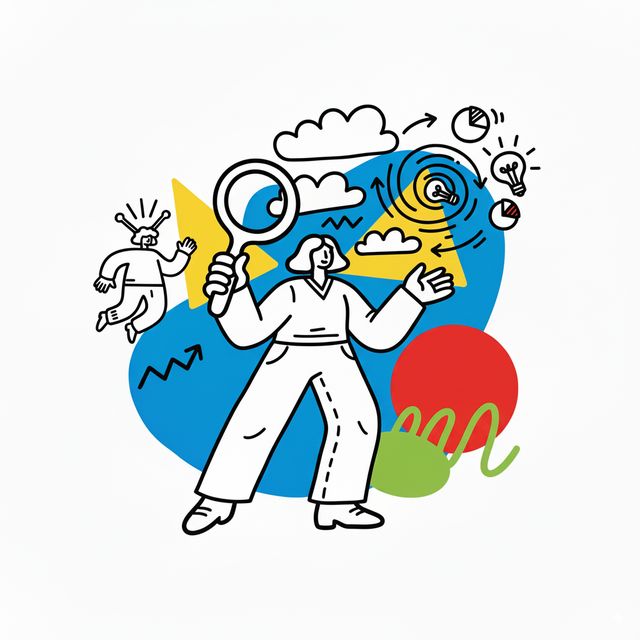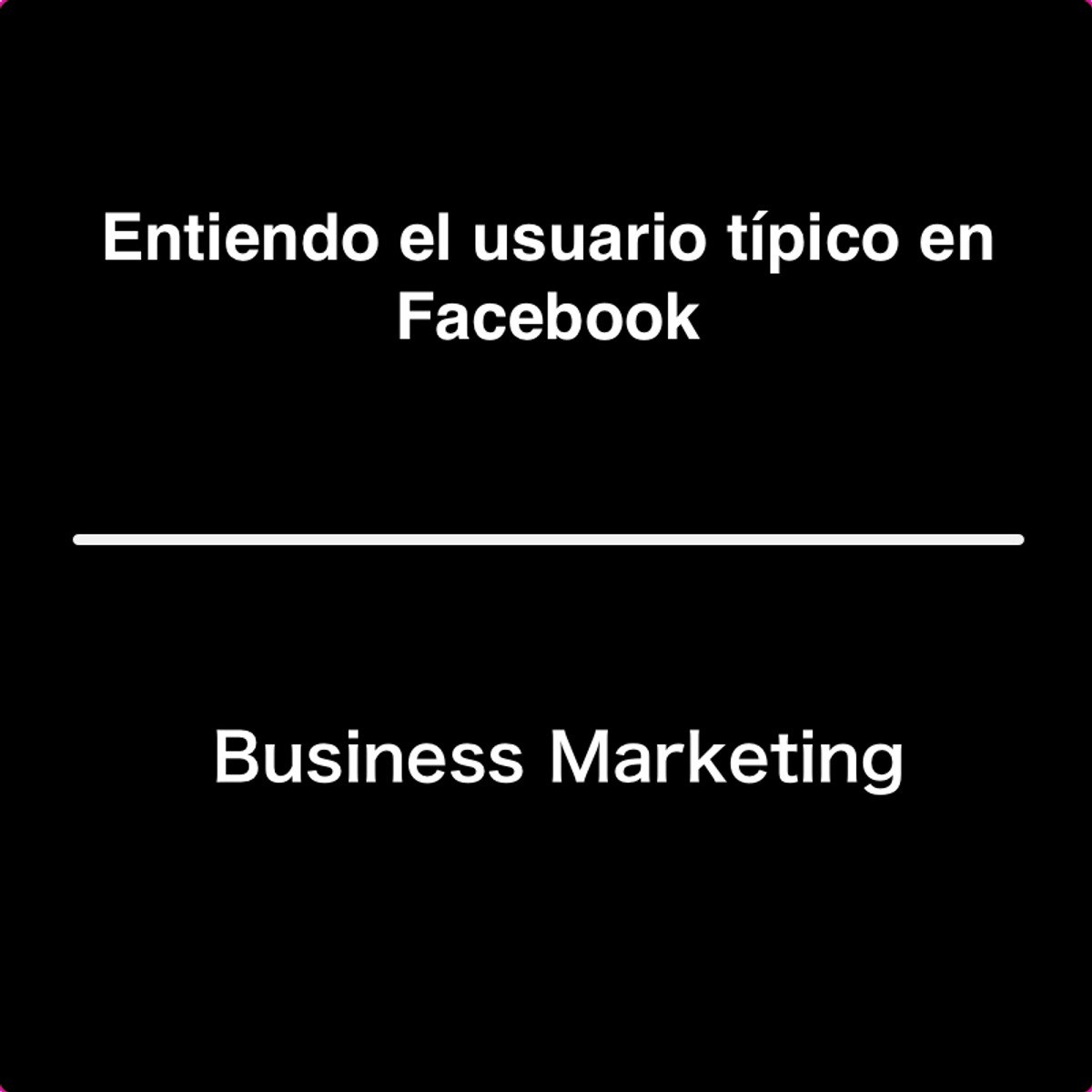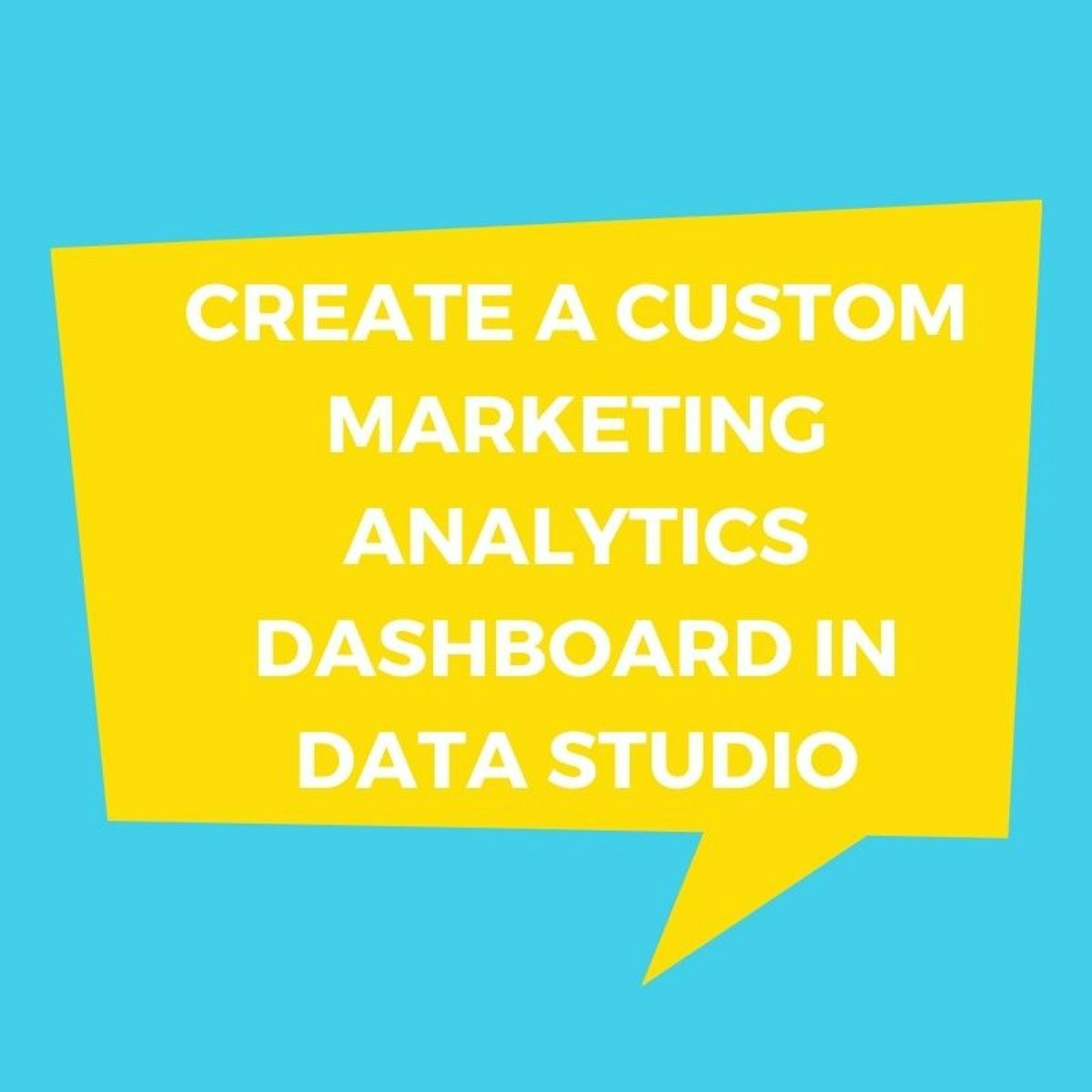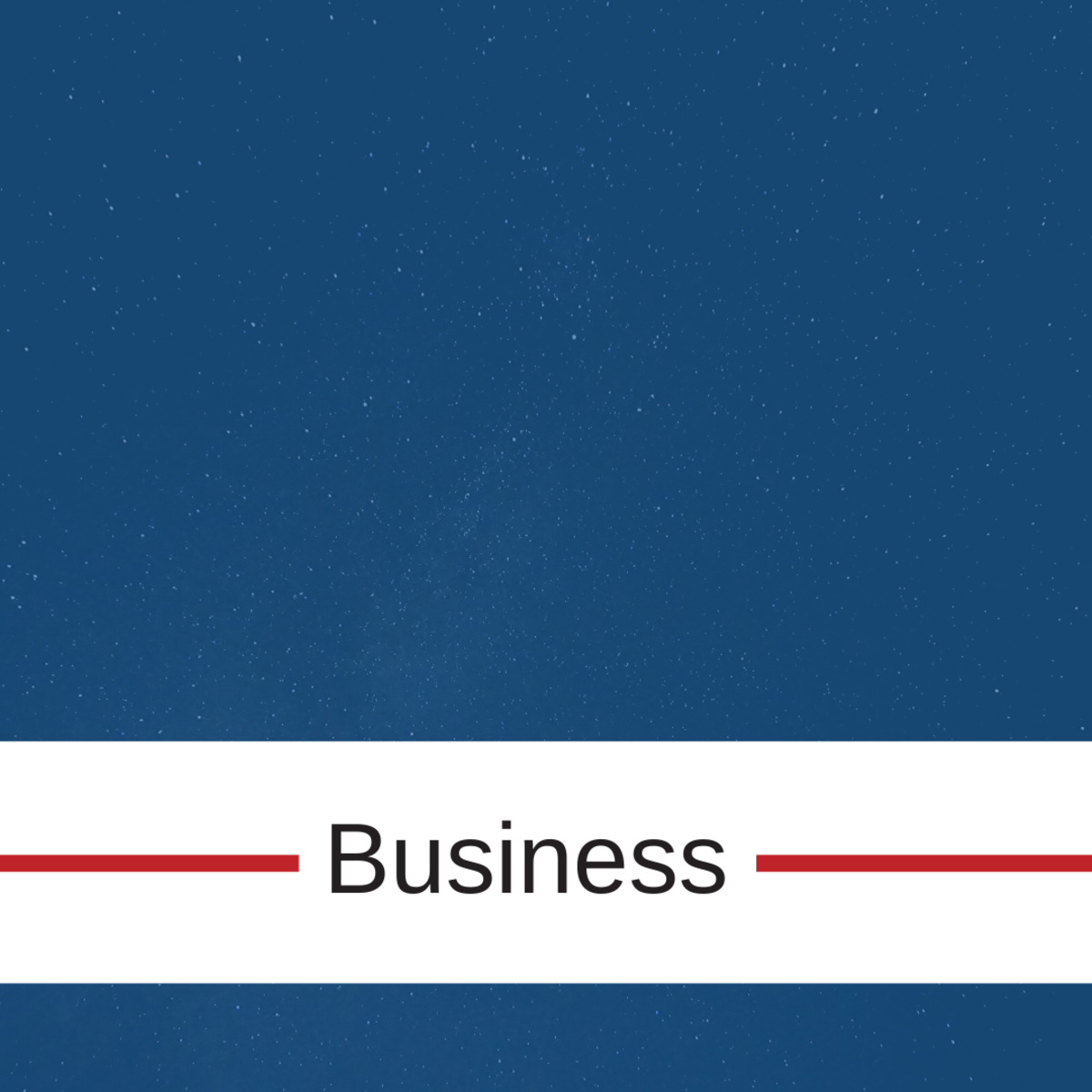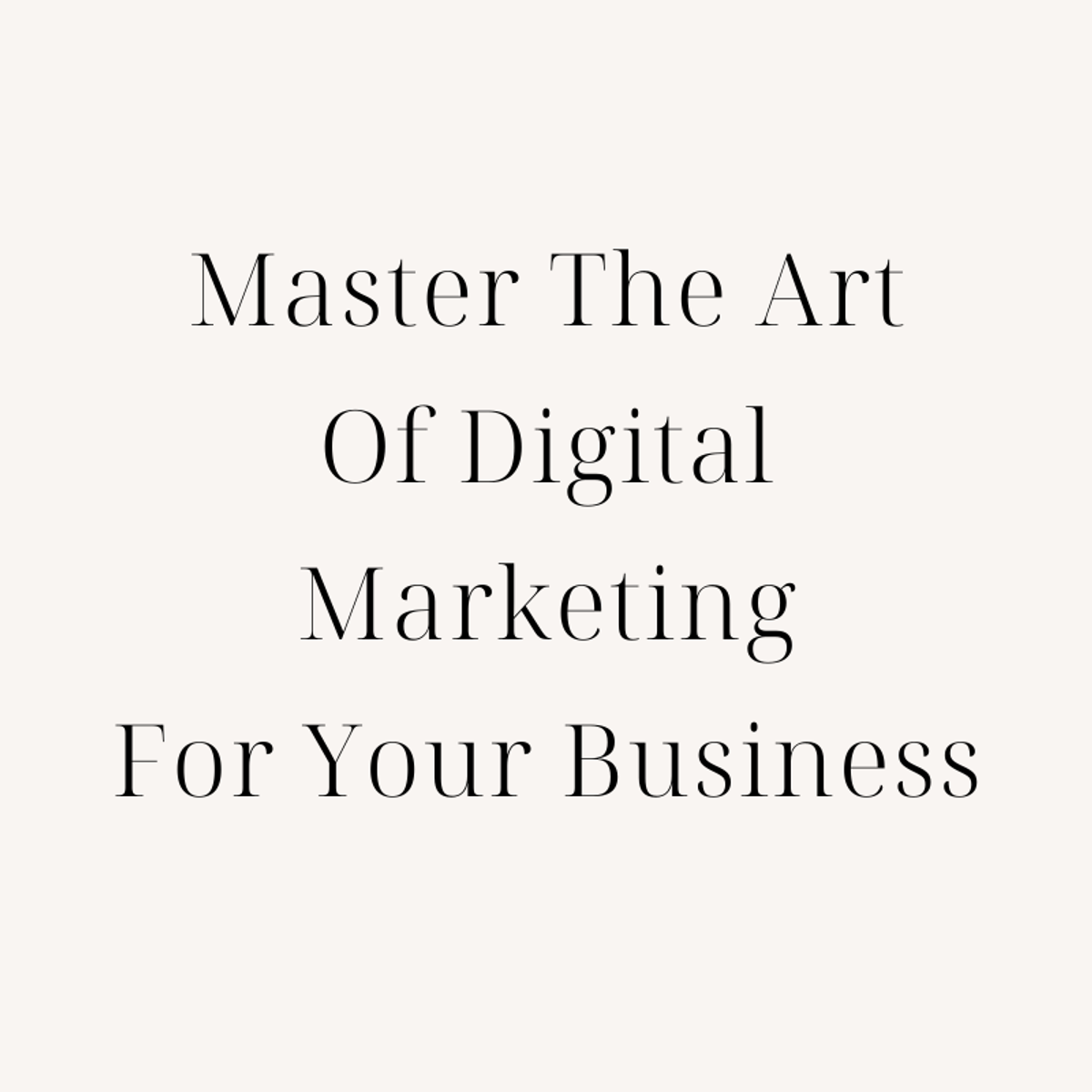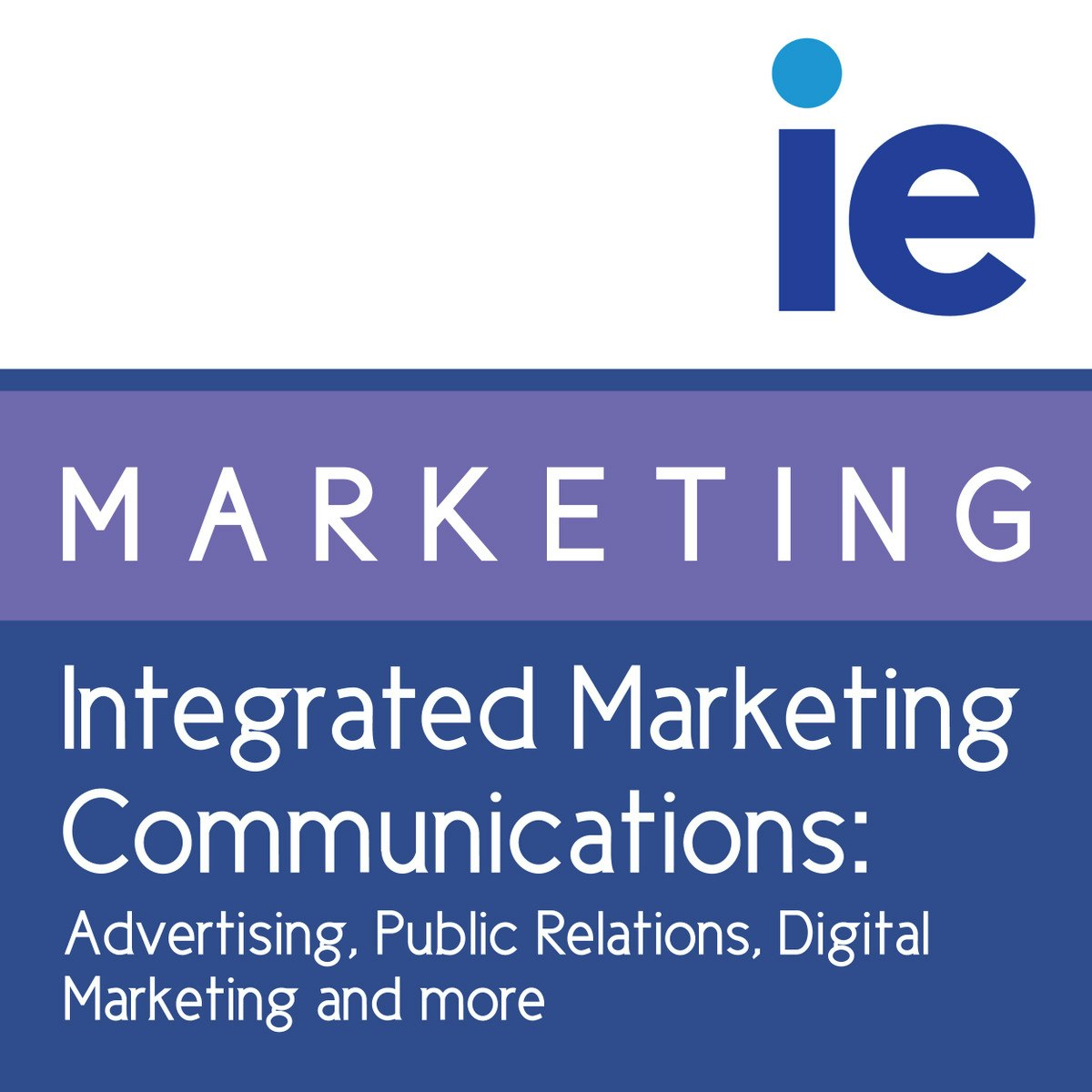Digital Marketing Specialist
A Career as a Digital Marketing Specialist
A Digital Marketing Specialist is a professional who uses online channels to help businesses reach their target audiences, build brand awareness, and ultimately drive sales or other desired actions. They craft, implement, and monitor marketing campaigns across various digital platforms like search engines, social media, email, and websites. Think of them as the bridge connecting a company's products or services with potential customers in the vast digital world.
Working in digital marketing can be quite dynamic. You might find the challenge of translating business goals into effective online strategies engaging. The field also offers opportunities for creativity, whether in writing compelling ad copy, designing eye-catching visuals, or producing engaging video content. Furthermore, the analytical aspect—digging into data to understand campaign performance and customer behavior—can be deeply satisfying for those who enjoy problem-solving.
Overview of Digital Marketing Specialist
Understanding the role of a Digital Marketing Specialist begins with recognizing its core purpose: to leverage the power of the internet and digital technologies for marketing objectives. This involves much more than just posting on social media; it encompasses a strategic approach to online presence and customer engagement.
What is a Digital Marketing Specialist?
A Digital Marketing Specialist focuses on planning and executing strategies to promote a brand, product, or service online. Their primary goal is often to generate leads, increase website traffic, improve brand visibility, and boost conversions or sales. They work within the broader Marketing department or sometimes as part of a dedicated digital team.
Key responsibilities include developing campaign concepts, managing online advertising budgets, optimizing website content for search engines (Search Engine Optimization or SEO), running email marketing campaigns, managing social media presence, and analyzing performance data to refine strategies. Essentially, they ensure a company has a strong and effective digital footprint.
Digital Marketing Specialists are employed across nearly every industry, from tech startups and e-commerce businesses to non-profits, healthcare organizations, and large corporations. Agencies specializing in marketing services also hire many specialists to work with various clients. The ubiquity of the internet means almost every organization benefits from digital marketing expertise.
These introductory courses provide a good overview of the digital marketing landscape.
The Evolving Digital Landscape
The role of a Digital Marketing Specialist is constantly evolving due to rapid technological advancements. What worked five years ago might be obsolete today. The rise of new social media platforms, changes in search engine algorithms, and the increasing importance of mobile marketing require specialists to be adaptable and continuous learners.
Artificial intelligence (AI) is significantly impacting the field. AI tools now assist with tasks like data analysis, content creation, ad targeting, and customer service automation. While AI automates some routine tasks, it also creates opportunities for marketers to focus on higher-level strategy, creativity, and interpreting complex data, shifting the required skillsets towards more strategic thinking.
Furthermore, growing concerns about data privacy and regulations like the GDPR mean specialists must stay informed about legal requirements and ethical considerations. The emphasis is shifting towards building trust and providing value to customers through transparent and responsible marketing practices. This dynamic environment makes the career challenging but also exciting for those who embrace change.
Key Responsibilities and Daily Tasks
The day-to-day work of a Digital Marketing Specialist can be varied, often involving a mix of creative, analytical, and strategic tasks. They are central figures in bringing a company's online marketing efforts to life.
Crafting and Running Campaigns
A significant part of the role involves developing and executing marketing campaigns. This starts with understanding the campaign objective – perhaps launching a new product, increasing brand awareness, or driving sign-ups for a newsletter. The specialist then identifies the best channels (e.g., Google Ads, Facebook, Instagram, email) to reach the target audience.
Workflow includes creating content (ad copy, visuals, landing pages), setting up the campaign within the chosen platforms, defining targeting parameters, and managing the budget. They often collaborate with graphic designers, copywriters, and web developers to produce the necessary assets.
Once a campaign is live, the specialist monitors its progress closely, making adjustments as needed to optimize performance. This could involve tweaking ad copy, changing targeting, or reallocating budget between different channels based on real-time data.
record:17ryml
Understanding and Reaching the Audience
Effective digital marketing hinges on understanding the target audience. Specialists use various tools and techniques for audience segmentation, which involves dividing a broad market into smaller, defined groups based on demographics, interests, behavior, or other characteristics.
They conduct market research and analyze existing customer data to build detailed buyer personas – semi-fictional representations of ideal customers. This understanding informs targeting strategies, ensuring marketing messages reach the most relevant people.
Targeting can be implemented through platform-specific tools, such as selecting interests and demographics on social media ad platforms or choosing specific keywords for search engine marketing (SEM). The goal is to deliver personalized and relevant experiences that resonate with the audience, increasing engagement and conversion rates.
Measuring Success
A crucial aspect of digital marketing is its measurability. Specialists use analytics tools, most commonly Google Analytics, along with platform-specific dashboards (like those within Facebook Ads or Google Ads) to track campaign performance.
They define Key Performance Indicators (KPIs) relevant to campaign goals, such as click-through rates (CTR), conversion rates, cost per acquisition (CPA), and Return on Ad Spend (ROAS). These metrics provide insights into what's working and what isn't.
Regular analysis and reporting are essential. Specialists interpret the data, identify trends, and communicate findings to stakeholders, often including recommendations for future strategies. This data-driven approach allows for continuous improvement and ensures marketing investments deliver tangible results.
These courses cover essential analytics and reporting techniques.
Essential Skills for Success
Success as a Digital Marketing Specialist requires a blend of technical know-how, creative thinking, and strong interpersonal abilities. The specific skills needed can vary depending on the role's focus and seniority.
Technical Proficiency
A solid grasp of digital marketing tools and techniques is fundamental. Proficiency in web analytics platforms like Google Analytics is essential for tracking performance and deriving insights. Understanding SEO principles and best practices helps ensure website content is discoverable by search engines.
Knowledge of SEM platforms, particularly Google Ads, is crucial for running paid search campaigns. Familiarity with various social media advertising platforms (Facebook, Instagram, LinkedIn, TikTok, etc.) is also vital for reaching audiences effectively. Content marketing skills involve creating and distributing valuable content (blogs, videos, infographics) to attract and retain an audience.
As roles become more senior, deeper expertise in specific areas like marketing automation, data visualization (Tableau), or specific Content Management Systems (CMS) like WordPress may be required. Continuous learning is key, as new tools and techniques emerge constantly.
These courses offer training in core technical areas.
Soft Skills and Collaboration
Technical skills alone are not enough. Strong communication skills are crucial for presenting strategies, reporting results, and collaborating with team members or clients. Digital Marketing Specialists often need to explain complex data or technical concepts in an understandable way.
Collaboration is key, as specialists frequently work with designers, developers, sales teams, and other marketing professionals. The ability to work effectively in a team environment, manage projects, and handle feedback is important. Client management skills are particularly vital in agency settings.
Creativity and problem-solving skills are also highly valued. Developing innovative campaign ideas, finding solutions to underperforming strategies, and adapting to unexpected changes are common challenges. Curiosity and a willingness to experiment and learn from both successes and failures are hallmarks of successful specialists.
Educational Pathways
While practical skills and experience are paramount in digital marketing, formal education can provide a strong foundation and open doors to certain opportunities. Various paths can lead to a career as a Digital Marketing Specialist.
Formal Education Options
Many Digital Marketing Specialists hold a bachelor's degree in fields like Marketing, Communications, Business Administration, Advertising, or even Journalism. These programs often cover foundational marketing principles, consumer behavior, market research, and communication strategies that are relevant to the digital space.
Some universities now offer specific undergraduate majors or concentrations in Digital Marketing, providing more focused coursework on topics like SEO, social media marketing, and web analytics. Electives in graphic design, web development, or data analysis can also be beneficial.
For those seeking deeper expertise or aiming for leadership roles, a master's degree in Marketing, Digital Marketing, or an MBA with a marketing concentration can be advantageous. These advanced programs often delve into strategic planning, advanced analytics, and management skills.
Certifications and Specialized Training
Beyond formal degrees, numerous certifications and specialized training programs can enhance skills and demonstrate expertise. Certifications from platforms like Google (e.g., Google Ads, Google Analytics certifications) and Meta (e.g., Facebook Blueprint) are highly recognized in the industry.
Professional organizations and training providers offer comprehensive digital marketing certifications covering various disciplines. These can be particularly valuable for career changers or those looking to specialize in a specific area like SEO, content marketing, or email marketing.
OpenCourser provides access to a wide array of online courses, including many that offer certificates upon completion. These courses cover specific tools, platforms, and strategies, allowing learners to build targeted skills at their own pace. You can explore options across various providers and find courses tailored to your specific learning goals and budget.
Consider these comprehensive certification-focused programs:
Academic Exploration
For individuals interested in the theoretical underpinnings of the field, academic research offers avenues for exploration. Universities conduct research into digital consumer behavior, the effectiveness of online advertising techniques, the societal impact of social media, and the ethical implications of data usage in marketing.
Students in relevant master's or PhD programs may have opportunities to participate in such research, contributing to the knowledge base of the field. While not a typical path for practitioners, understanding academic research can provide deeper insights into why certain strategies work and how the digital landscape might evolve.
Exploring topics related to consumer psychology and behavioral economics can also provide valuable context for understanding how users interact with digital platforms and respond to marketing messages.
Learning Online and Building Experience
The digital marketing field is relatively accessible for self-starters and career changers, partly because skills and demonstrable results often outweigh traditional credentials. Online learning plays a crucial role in acquiring the necessary knowledge and building practical experience.
Leveraging Online Courses
Online courses offer a flexible and effective way to learn digital marketing fundamentals and specialized skills. Platforms like Coursera, Udemy, and edX, searchable through OpenCourser's Marketing category, provide courses covering everything from SEO basics and Google Ads management to content marketing strategies and social media advertising.
These courses are suitable for building foundational knowledge if you're new to the field, supplementing formal education, or upskilling as a working professional. Many courses include hands-on projects or case studies, allowing you to apply concepts immediately. OpenCourser's features, like summarized reviews and course comparisons, help you find the right fit for your learning style and goals.
Successfully completing online courses, especially those offering certificates, can strengthen your resume and demonstrate initiative to potential employers. The OpenCourser Learner's Guide offers tips on effectively using online courses for career development, including how to structure your learning and showcase your achievements.
Here are some highly-rated, comprehensive online courses to consider:
This book offers a strategic overview valuable for learners.
Building a Portfolio
A portfolio showcasing your skills and accomplishments is often more persuasive than a resume alone. Even without formal work experience, you can build a portfolio through personal projects, freelance work, or volunteering.
Consider starting a blog or website on a topic you're passionate about and apply SEO techniques to improve its visibility. Run small ad campaigns on social media for a personal project or a friend's small business, tracking the results. Offer your skills to a local non-profit organization to help manage their social media or email newsletter.
Document your process and results for each project: outline the goals, the strategies you implemented, the tools you used, and the outcomes achieved (e.g., increased traffic, higher engagement rates, lead generation). Include examples of content you created, such as ad copy, social media posts, or blog articles.
Gaining Practical Exposure
Beyond self-directed projects, seek opportunities for practical exposure. Many free or low-cost certification programs, especially from tool providers like Google or HubSpot, not only teach skills but also provide credentials.
Participating in marketing hackathons or case competitions offered by universities or industry organizations can provide valuable experience in solving real-world marketing challenges under pressure and collaborating with others.
Internships, even short-term or part-time ones, offer invaluable hands-on experience and networking opportunities. Engaging with the digital marketing community online, following industry blogs, and attending webinars can also help you stay current and learn from experienced professionals.
Career Progression and Related Roles
A career in digital marketing offers various pathways for growth and specialization. Understanding the typical progression can help you plan your long-term career trajectory.
Starting Your Journey
Entry-level positions often carry titles like Digital Marketing Coordinator, Marketing Assistant, Social Media Coordinator, or Junior SEO Specialist. These roles typically involve supporting senior team members, executing specific tasks within larger campaigns, managing social media accounts, compiling reports, or conducting basic keyword research.
These initial roles provide crucial hands-on experience across different facets of digital marketing. It's a time to learn the fundamentals, understand different tools and platforms, and discover which areas of digital marketing you find most engaging.
Building a strong foundation in analytics, content creation, and understanding various digital channels during this stage is essential for future advancement. Don't be afraid to ask questions and seek mentorship from more experienced colleagues.
Advancing Your Career
With experience, specialists often deepen their expertise in a particular area, such as SEO, SEM, content marketing, email marketing, social media marketing, or marketing analytics. This can lead to roles like SEO Manager, SEM Strategist, Content Marketing Manager, or Social Media Manager.
Alternatively, some professionals pursue a broader path, becoming a Digital Marketing Manager responsible for overseeing multiple channels and managing campaigns more holistically. These roles often involve more strategic planning, budget management, and potentially team leadership.
Further progression can lead to senior leadership positions like Director of Digital Marketing or Head of Marketing, responsible for setting the overall digital strategy for the organization and managing larger teams and budgets. Transitioning into related fields like e-commerce management, product marketing, or marketing operations is also possible.
This book discusses strategic management, relevant for advancing careers.
Tools of the Trade
Digital Marketing Specialists rely on a wide array of software and platforms to perform their jobs effectively. Familiarity with key tools is often a prerequisite for many roles.
Core Marketing Platforms
Marketing automation platforms like HubSpot, Marketo, or Pardot help streamline repetitive tasks, manage leads, and automate email campaigns and social media posting. Customer Relationship Management (CRM) systems (e.g., Salesforce, HubSpot CRM) are used to manage customer interactions and track leads through the sales funnel.
Web analytics tools, predominantly Google Analytics, are indispensable for tracking website traffic, user behavior, and campaign performance. SEO tools such as SEMrush, Ahrefs, or Moz are used for keyword research, competitor analysis, site audits, and tracking search rankings.
Proficiency in spreadsheet software like Excel or Google Sheets is also crucial for data analysis, reporting, and budget management. Data visualization tools like Tableau or Google Data Studio help present complex data in an easily understandable format.
These courses cover essential platforms and analytics tools.
This book delves into analyzing marketing data.
Social Media and Content Tools
Managing multiple social media profiles requires specialized tools. Platforms like Hootsuite, Buffer, or Sprout Social allow specialists to schedule posts, monitor engagement, and analyze performance across different networks from a single dashboard.
Content creation often involves graphic design tools. While professional software like Adobe Photoshop or Illustrator is common, simpler web-based tools like Canva are increasingly popular for creating social media graphics, presentations, and other visual content quickly and easily.
For video content, editing software ranging from professional tools like Adobe Premiere Pro or Final Cut Pro to simpler options like Filmora or even mobile apps might be used. Content Management Systems (CMS) like WordPress are essential for publishing and managing website content like blog posts and landing pages.
Emerging Technologies
Artificial Intelligence (AI) is rapidly becoming integrated into various marketing tools. AI assists with tasks like generating content ideas, writing ad copy, optimizing ad bids in real-time, personalizing user experiences, and powering chatbots for customer service.
Tools like ChatGPT or Google Gemini are used for brainstorming, content generation, and research. AI features are also being built into established platforms like Google Ads (Performance Max) and various marketing automation suites to improve targeting and efficiency.
Understanding the capabilities and limitations of AI, and learning how to leverage AI tools effectively and ethically, is becoming an increasingly important skill for Digital Marketing Specialists. Staying updated on these emerging technologies is crucial for long-term success.
These courses explore the intersection of AI and marketing.
Ethical Considerations in Digital Marketing
As digital marketing becomes more sophisticated and data-driven, ethical considerations take center stage. Specialists must navigate complex issues related to privacy, transparency, and the responsible use of technology.
Navigating Data Privacy
Collecting and using customer data is central to digital marketing, but it comes with significant responsibility. Regulations like the EU's General Data Protection Regulation (GDPR) and various state-level laws in the US (like the California Consumer Privacy Act - CCPA) impose strict rules on how personal data can be collected, processed, stored, and shared.
Specialists must understand these regulations and ensure their marketing practices comply. This includes obtaining proper consent for data collection, being transparent about data usage, providing users with control over their data (e.g., rights to access or deletion), and implementing security measures to protect data from breaches.
Failure to comply can result in hefty fines and significant damage to a brand's reputation. Ethical data handling involves respecting user privacy and using data in ways that provide value to the customer, not just the business.
This book provides a useful overview of data science in a business context.
Responsible Marketing Practices
Beyond legal compliance, ethical marketing involves responsible use of consumer insights and technology. This means avoiding manipulative tactics, deceptive advertising (like "clickbait"), and intrusive practices that harm the user experience.
Transparency is key. Disclosing sponsored content or affiliate relationships is crucial for maintaining trust. Specialists should also be mindful of targeting vulnerable populations or using persuasive techniques in ways that could be exploitative.
Issues like "greenwashing"—making misleading claims about a product's environmental benefits—also fall under the umbrella of ethical marketing. The goal should be to build genuine relationships with customers based on honesty, value, and respect, rather than relying on short-term tricks.
The Global Digital Marketing Landscape
Digital marketing operates on a global scale, presenting both opportunities and challenges for specialists. Understanding market variations and international dynamics is increasingly important.
Market Demand and Opportunities
The demand for digital marketing skills is high globally, but specific needs can vary by region. According to LinkedIn data cited by multiple sources, "Digital Marketing Specialist" is consistently ranked among the most in-demand jobs globally. The overall field is projected to grow faster than the average for all occupations.
Developed markets may have higher demand for specialists in advanced analytics, AI, or programmatic advertising, while emerging markets might prioritize foundational skills in social media, SEO, and mobile marketing. Researching specific regional trends is crucial for international job seekers.
The rise of remote work and the freelance economy (gig economy) has opened up global opportunities. Specialists can potentially work for companies or clients located anywhere in the world, leveraging platforms that connect freelancers with projects.
Adapting to Global Markets
Running campaigns across different countries introduces complexities. Localization involves adapting marketing messages, visuals, and strategies to suit the cultural norms, languages, and consumer behaviors of specific markets. What resonates in one culture might be ineffective or even offensive in another.
Technical challenges include navigating different regulatory environments (beyond GDPR), understanding local platform preferences (e.g., specific social media networks popular in certain regions), and managing different currencies and payment methods for e-commerce.
Successfully managing multinational campaigns requires cultural sensitivity, thorough market research, and often collaboration with local teams or partners who understand the nuances of each specific market.
Frequently Asked Questions
Here are answers to some common questions about pursuing a career as a Digital Marketing Specialist.
What is the typical salary range?
Salaries vary significantly based on experience, location, industry, company size, and specific skills. Entry-level roles might start around $53,000-$58,000 annually in the US. The average annual pay for a Digital Marketing Specialist in the United States is around $60,000 to $72,000, according to recent data from sources like ZipRecruiter, Salary.com, and Talent.com. Experienced specialists and managers can earn significantly more, with senior roles potentially exceeding $100,000-$120,000, especially at large tech companies or in high-demand niches.
Is a degree required, or is skill-based hiring more common?
While many employers prefer a bachelor's degree in marketing or a related field, it's not always a strict requirement, especially for entry-level roles or at smaller companies/startups. Demonstrable skills, a strong portfolio showcasing successful projects, and relevant certifications often carry significant weight. The field is known for valuing practical experience and results, making it accessible for skilled individuals from diverse educational backgrounds. However, a degree can be an advantage, particularly for advancement into management roles.
How is Artificial Intelligence (AI) impacting job security?
AI is transforming digital marketing, automating routine tasks like data analysis, basic content generation, and ad buying. While this raises concerns about job displacement, most experts believe AI is more likely to augment rather than replace marketing roles. AI handles repetitive tasks, freeing up specialists to focus on strategy, creativity, interpreting AI insights, and managing complex campaigns. However, it emphasizes the need for marketers to continuously learn and adapt, developing skills in AI strategy, prompt engineering, and data interpretation to remain competitive. According to Gartner, 75% of companies using AI aim to move talent into more strategic roles.
How prevalent is remote work in this field?
Digital marketing is well-suited for remote work, and the prevalence of remote opportunities has increased significantly. Many tasks, such as managing online campaigns, analyzing data, and creating content, can be performed effectively from anywhere with an internet connection. Many companies now offer fully remote or hybrid roles for Digital Marketing Specialists, and freelance opportunities are also abundant in the global marketplace.
Can I transition from traditional marketing?
Yes, transitioning from traditional marketing is common. Many foundational marketing principles (understanding audiences, branding, campaign strategy) apply directly to the digital realm. Professionals making this transition need to acquire digital-specific skills, such as SEO, SEM, social media platform management, web analytics, and familiarity with relevant digital tools. Online courses, certifications, and hands-on projects are excellent ways to bridge the skills gap.
Which industry certifications offer the best return on investment (ROI)?
Certifications from major platform providers like Google (Google Ads, Google Analytics) and Meta (Meta Certified Digital Marketing Associate) are highly recognized and valuable as they demonstrate proficiency in widely used tools. Comprehensive digital marketing certifications from reputable institutions or training bodies can also be beneficial, especially those covering multiple disciplines. The "best" ROI depends on your career goals; specializing in high-demand areas like data analytics, SEO, or marketing automation can lead to higher earning potential.
Embarking on a career as a Digital Marketing Specialist can be a rewarding path for those passionate about technology, creativity, and understanding consumer behavior. It's a dynamic field that demands continuous learning and adaptability, offering diverse opportunities across various industries. While challenges exist, particularly in keeping pace with rapid technological change and navigating ethical complexities, the demand for skilled digital marketers remains strong. With dedication to developing both technical and soft skills, building practical experience, and embracing lifelong learning, you can build a successful and fulfilling career in this exciting domain. Remember to leverage resources like OpenCourser to find the learning materials you need to achieve your goals.

